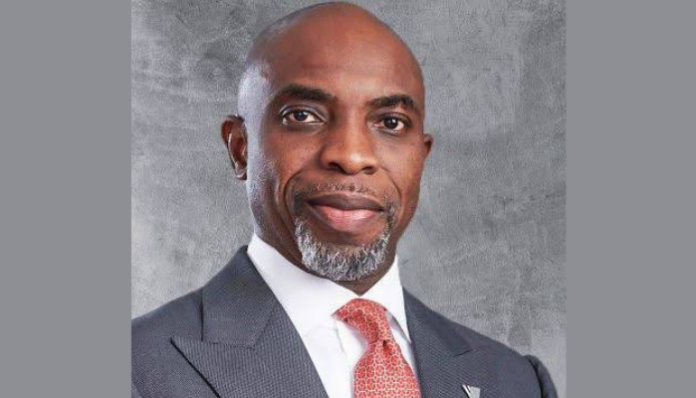AMID acute housing deficit in Nigeria, Wema Bank has lent only 0.36 percent loan belonging to the National Housing Fund (NHF) and the Nigerian Mortgage Refinance Company (NMRC) to Nigerians seeking mortgage credit, Economy Post understands.
Out of N1.509 billion (N1,508,524,000) belonging to the two mortgage-funding institutions left in Wema Bank in December 2022, the deposit money bank granted only N5.405 million between January and June 2023, leaving a balance of N1.503 billion (1,503,119,000) in its coffers by June 2023.
By implication, Wema Bank only gave out N5.405 million loan to Nigerians or firms seeking to bridge over 18 million units housing deficit over the period.
According to the Mortgage Banking Association of Nigeria, the National Housing Fund is “a Federal Government scheme, which entitles all Nigerians above the age of 21 years in paid employment to a low interest, government funded loan.”
Members of the scheme contribute 2.5 percent of their monthly salaries to the Fund through the Federal Mortgage Bank of Nigeria. The maximum amount obtainable under the NHF is N15 million and is repayable over a maximum of 30 years at the rate of 6 percent interest.
On the other hand, the NMRC was “established to bridge the funding cost of residential mortgages and promote the availability as well as the affordability of good housing to Nigerians by providing increased liquidity in the mortgage market though the mortgage and commercial bank,” says the Central Bank of Nigeria (CBN).
In other words, both are Federal Government schemes meant to ensure that Nigerians meet their housing needs. But Wema Bank under the management of Ademola Adebise and Moruf Oseni lent merely 0.35 percent mortgage loan in its tills to Nigerians seeking mortgage credit in six months.
Adebise handed over the baton of Wema Bank leadership to Oseni in April, 2023.
Nigeria’s huge housing needs
Real estate experts agree that Nigeria has a very high housing deficit. The bone of contention, however, is whether it is 18 million units, 28 million units or more. A 2019 presentation by Emmanuel Abola Moore entitled, “Addressing Housing Deficit in Nigeria:
Issues, Challenges and Prospects,” put Nigeria’s housing deficit at 18-22 million units and estimated the country’s population at 185 million -200 million.
READ ALSO: Outrage as Zenith Bank lends 7% of N311bn intervention fund in six months
Citing the Affordable Housing Investment Summit data, Mr Moore estimated Ghana’s housing gap at 1.7 million – 2.6 million units, putting the country’s population at 28-30 million.
He estimated Kenya’s housing gap at 2 million units, putting its population at 45 million-52 million.
While South Africa’s housing gap was estimated at 2.3 million units (56 million -58 million population), Uganda’s was put at 1.7 million – 2.1 million units (37 million-43 million population). Ethiopia’s housing deficit was estimated at 1.2 million units for a population of 98 million -103 million people.
Nigeria’s ratio is worst
By implication, one out of 10 families in Nigeria is without a roof over its head. In Ghana, at least one out of 11 households has no home. In Kenya, things are better as only one in 26 households has no roof over its head.
In South Africa, one household out of 25 has no place to call home. On the other hand, one out of 20 households has no house in Uganda as against one in 88 households in Ethiopia. Hence while Ethiopia has the best ratio among the seven countries, Nigeria has the worst.

Mr Moore, who is an expert in housing, gave a graphic description of Nigeria’s housing problem.
“Nigeria needs at least about 1,000,000 additional units each year
to have a chance of bridging this huge gap. In Nigeria, neither the government
nor the private sector provides enough housing units, especially for the masses
that need and demand it.
“Formal housing production is at approximately 100
000 units per year and this is highly inadequate because at least 1,000,000 units
are needed yearly to bridge the 18 to 22 million housing deficits by government’s
target date of 2033 (if the population continues at its annual growth rate of 3.5
per cent). It is estimated that it will cost US$363 billion to curb the current housing
deficit and the number is expected to keep growing,” he added.
However, this is not a problem for Nigeria’s financial institutions, particularly Wema Bank.
Experts intervene
A United Kingdom-based real estate expert, Dr Ademola Adekola, said that the problem with mortgage funding in Nigeria was lack of commitment by both the government and the banks.
READ ALSO: Wema Bank enjoys CBN salary bailout despite 239% rise in profits
“Having access to mortgage funds in Nigeria is difficult because banks have a way of making it difficult. Also, when the funding is available, the amount is so small that they cannot be used for anything. Real estate everywhere is capital-intensive, but how much mortgage can N1.5 billion buy?” he asked.
A Lagos-based real estate player, Mr Leonard Okeke, said nobody would access intervention funds unless they were connected.
“Firms are not even looking at interventions because they cannot get anything from banks. This is why our housing problems are getting worse annually. So, the best bet is to raise funds privately through your partners or seek collaborations. But we can do better than that.”




